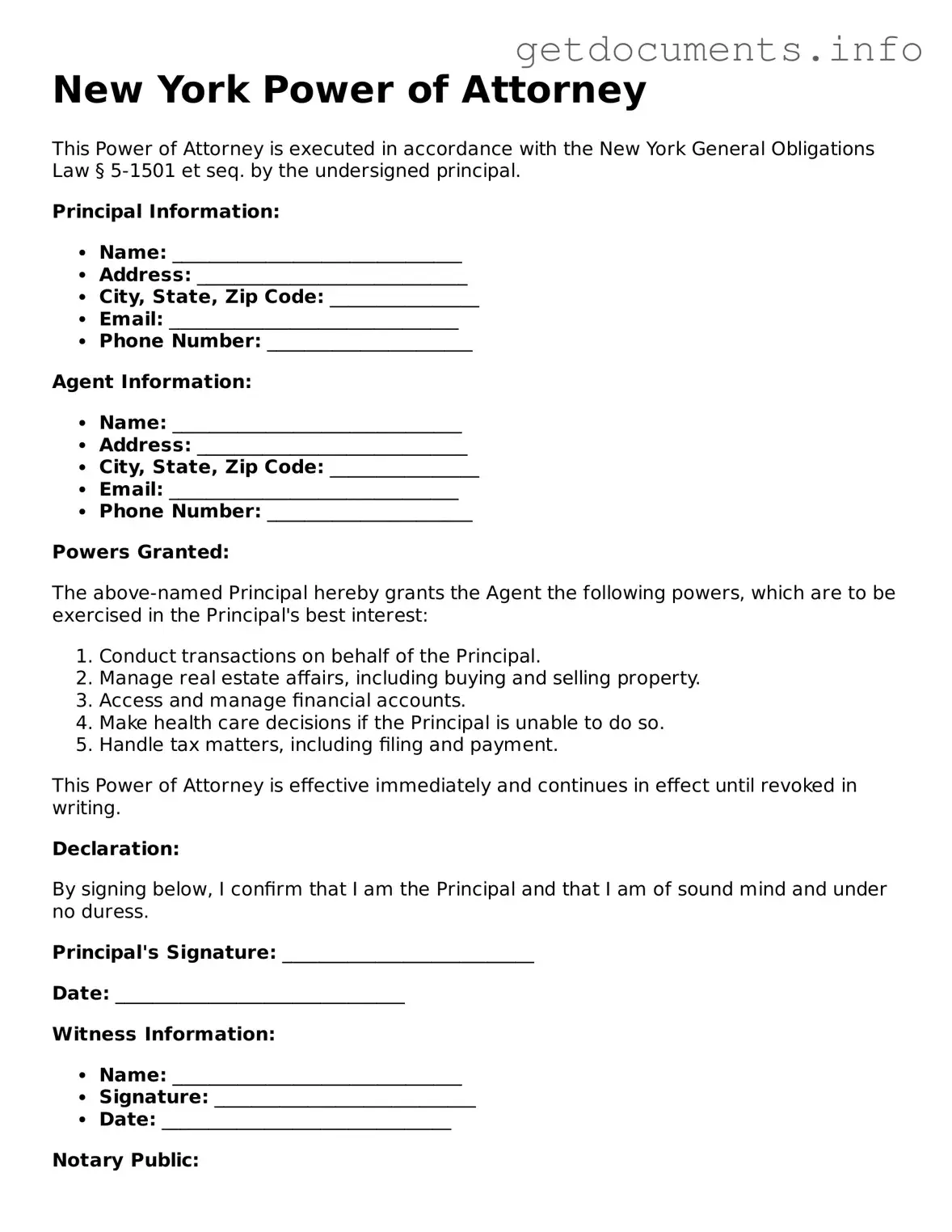Free Power of Attorney Template for New York
A Power of Attorney form in New York is a legal document that allows an individual to designate another person to act on their behalf in financial or legal matters. This form grants the appointed agent the authority to make decisions and manage affairs, ensuring that the principal's interests are represented even when they are unable to do so themselves. To take the next step in securing your interests, consider filling out the form by clicking the button below.
Access Power of Attorney Editor

Free Power of Attorney Template for New York
Access Power of Attorney Editor
Got places to be? Complete the form fast
Fill out Power of Attorney online and avoid printing or scanning.
Access Power of Attorney Editor
or
⇩ PDF File
